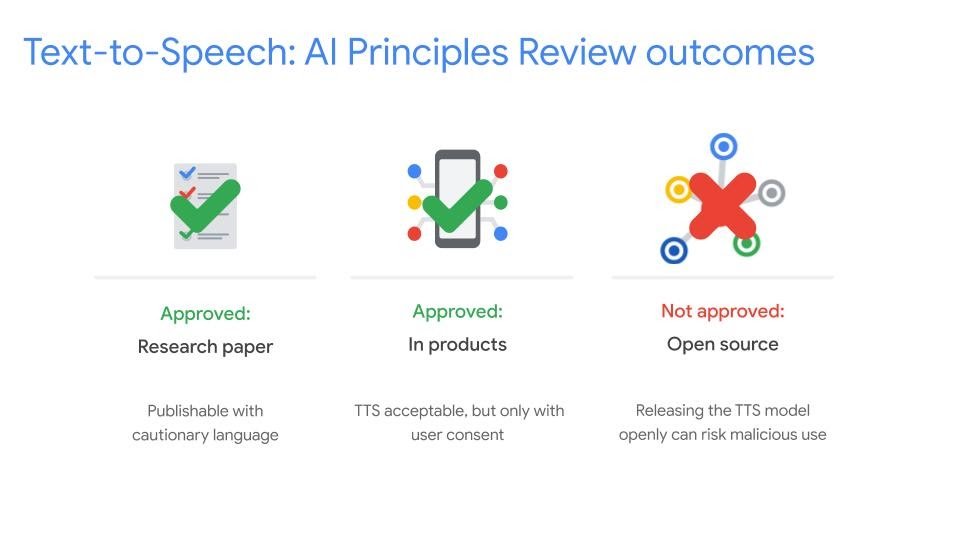Google Search has put the world’s information at the fingertips of over a billion people. Our engineers work to offer the best search engine possible, constantly improving and fine-tuning it. We think that’s why a wide cross-section of Americans value and often love our free products.
Today’s lawsuit by the Department of Justice is deeply flawed. People use Google because they choose to, not because they're forced to, or because they can't find alternatives.
This lawsuit would do nothing to help consumers. To the contrary, it would artificially prop up lower-quality search alternatives, raise phone prices, and make it harder for people to get the search services they want to use.
The Department's dubious complaint
Let's talk specifics. The Department's complaint relies on dubious antitrust arguments to criticize our efforts to make Google Search easily available to people.
Yes, like countless other businesses, we pay to promote our services, just like a cereal brand might pay a supermarket to stock its products at the end of a row or on a shelf at eye level. For digital services, when you first buy a device, it has a kind of home screen “eye level shelf.” On mobile, that shelf is controlled by Apple, as well as companies like AT&T, Verizon, Samsung and LG. On desktop computers, that shelf space is overwhelmingly controlled by Microsoft.
So, we negotiate agreements with many of those companies for eye-level shelf space. But let's be clear—our competitors are readily available too, if you want to use them.
Our agreements with Apple and other device makers and carriers are no different from the agreements that many other companies have traditionally used to distribute software. Other search engines, including Microsoft’s Bing, compete with us for these agreements. And our agreements have passed repeated antitrust reviews.
Here's more detail:
Apple devices
Apple features Google Search in its Safari browser because they say Google is “the best.” This arrangement is not exclusive—our competitors Bing and Yahoo! pay to prominently feature, and other rival services also appear.
Changing your search engine in Safari is easy. On desktop, one click and you’re presented with a range of options.

Apple’s iPhone makes it simple to change your settings and use alternative search engines in Safari—and it’s even easier in iOS14 where you can add widgets from different providers or swipe on the home screen to search.
Microsoft
Google doesn't come preloaded on Windows devices. Microsoft preloads its Edge browser on Windows devices, where Bing is the default search engine.

Android
On Android devices, we have promotional agreements with carriers and device makers to feature Google services. These agreements enable us to distribute Android for free, so they directly reduce the price that people pay for phones. But even with these agreements, carriers and device makers often preload numerous competing apps and app stores.

Look how easy it is to add a different search app or widget on Android.


The bigger point the lawsuit misses
The bigger point is that people don’t use Google because they have to, they use it because they choose to. This isn’t the dial-up 1990s, when changing services was slow and difficult, and often required you to buy and install software with a CD-ROM. Today, you can easily download your choice of apps or change your default settings in a matter of seconds—faster than you can walk to another aisle in the grocery store.
This lawsuit claims that Americans aren’t sophisticated enough to do this. But we know that’s not true. And you know it too: people downloaded a record 204 billion apps in 2019. Many of the world's most popular apps aren't preloaded—think of Spotify, Instagram, Snapchat, Amazon and Facebook.
The data shows that people choose their preferred service: take Mozilla’s Firefox browser as an example. It’s funded almost entirely by revenue from search promotional agreements. When Yahoo! paid to be the default search engine in Firefox, most Americans promptly switched their search engine to their first choice—Google. (Mozilla later chose Google to be its default search provider, citing an “effort to provide quality search” and its “focus on user experience.”)
It’s also trivially easy to change your search engine in our browser, Chrome.


How people access information today
There's another area in which the lawsuit is wrong about how Americans use the Internet. It claims that we compete only with other general search engines. But that’s demonstrably wrong. People find information in lots of ways: They look for news on Twitter, flights on Kayak and Expedia, restaurants on OpenTable, recommendations on Instagram and Pinterest. And when searching to buy something, around 60 percent of Americans start on Amazon. Every day, Americans choose to use all these services and thousands more.Next steps
We understand that with our success comes scrutiny, but we stand by our position. American antitrust law is designed to promote innovation and help consumers, not tilt the playing field in favor of particular competitors or make it harder for people to get the services they want. We’re confident that a court will conclude that this suit doesn’t square with either the facts or the law.
In the meantime, we remain absolutely focused on delivering the free services that help Americans every day. Because that’s what matters most.
You can learn more about our approach to competition at g.co/competition.


